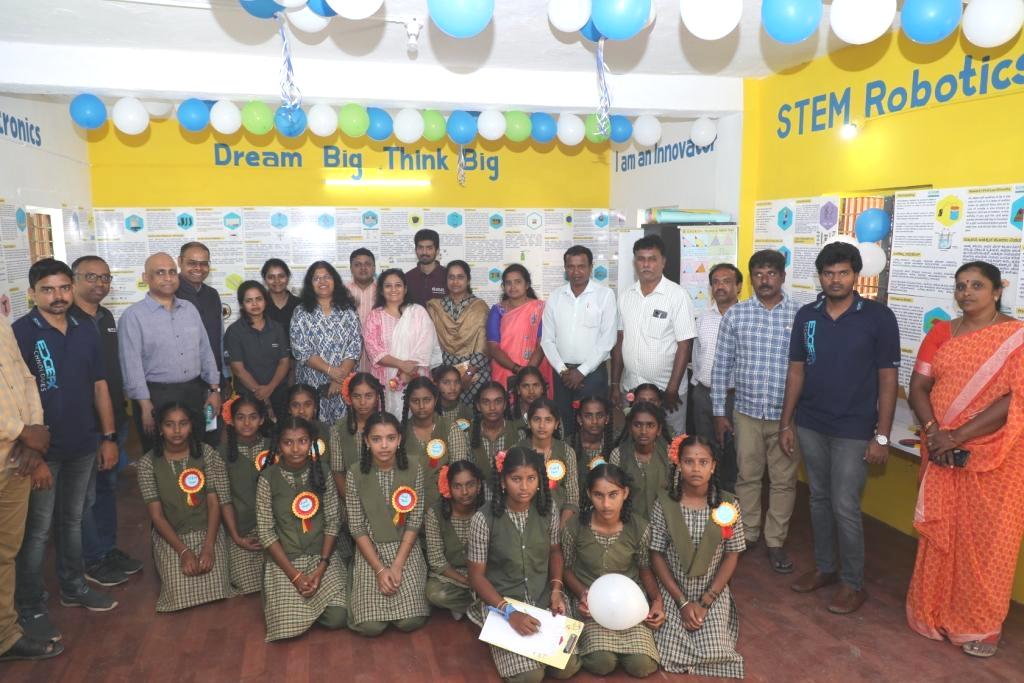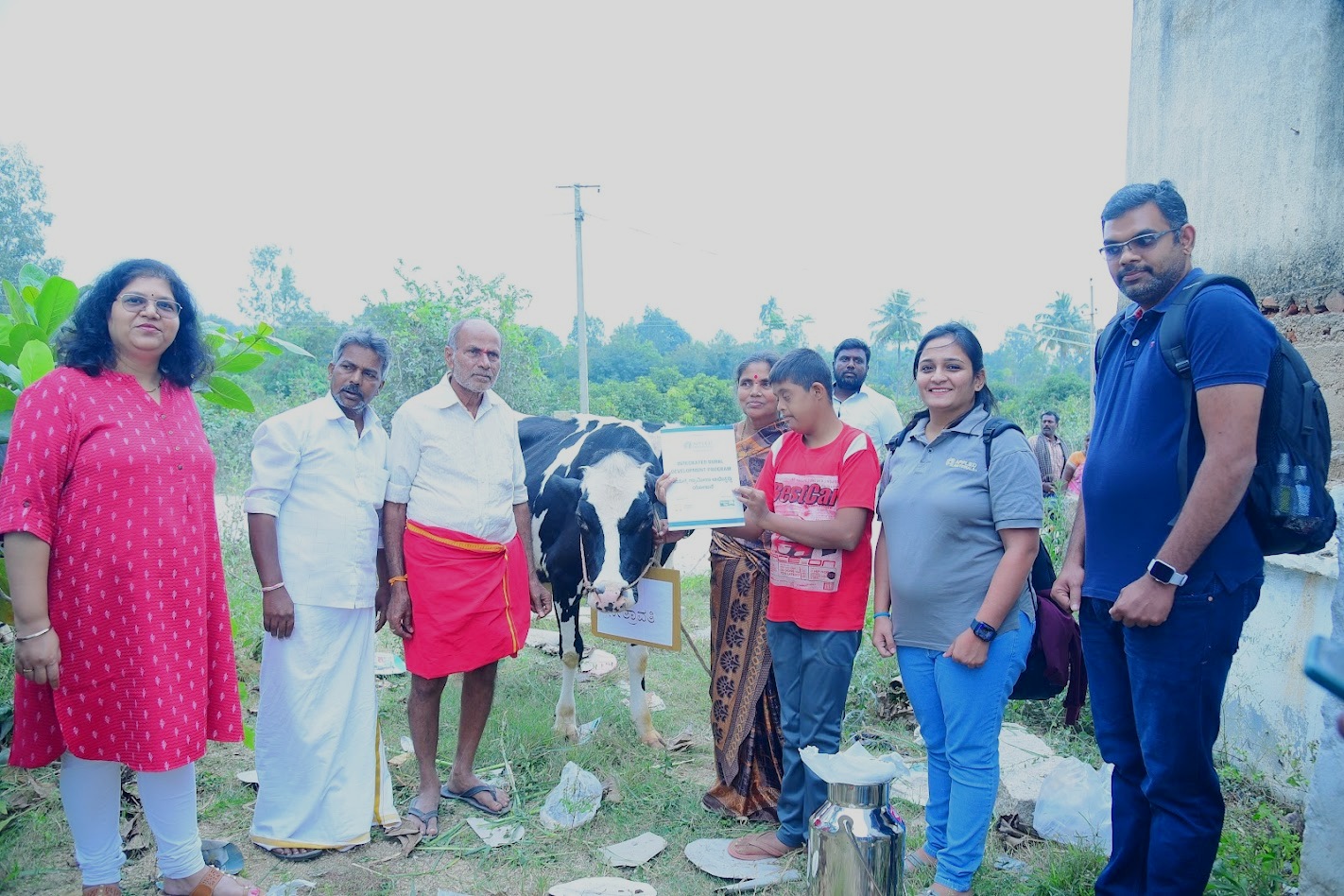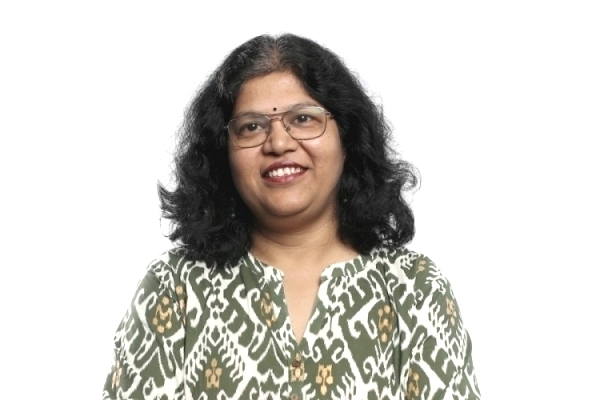Applied Materials India, a global leader in materials engineering solutions, has embarked on a transformative journey with the 'Rural Rising' program, in collaboration with United Way Bengaluru, aimed at catalyzing sustainable development in the rural communities of the Kolar district, Karnataka. Recognizing the profound challenges faced by these communities, including limited economic opportunities and barriers to essential services like education and healthcare, The company has committed to breaking the cycle of poverty through targeted interventions. Aligning with India's "Vocal for Local" campaign, the Rural Rising program not only addresses economic crises but also empowers local communities by harnessing their skills and resources.
In an exclusive interview with TheCSRUniverse, Ms. Sarika Rath, Head of Corporate Communications & Public Affairs at Applied Materials India, delves into the intricate details of the program's objectives, strategies, and its profound impact on rural development. She sheds light on how Rural Rising, working alongside its partner organization, is shaping the future of Kolar district's rural landscape, tailoring initiatives to specific subgroups, leveraging indigenous practices, and ensuring lasting change beyond direct involvement. This interview offers a compelling narrative of corporate social responsibility intertwined with grassroots empowerment, illustrating the power of collaboration, innovation, and community-centric approaches in fostering sustainable development.
Scroll down for detailed insights.
Q&A
 Q. What's the long-term goal of Rural Rising in shaping Kolar district's rural future, and what challenges does it specifically address?
Q. What's the long-term goal of Rural Rising in shaping Kolar district's rural future, and what challenges does it specifically address?
A. Kolar, situated at Tamil Nadu and Andhra Pradesh’s border, presents diverse challenges, including issues like limited water availability, scarce opportunities for sustained livelihood, and insufficient resources in education, resulting in a significant gap in teaching and learning quality compared to urban areas.
The Rural Rising program, an initiative conceptualized by United Way Bengaluru and implemented by Applied Materials India, primarily focuses on enhancing the living standards of community members in rural areas by identifying needs and improving available resources to ensure a sustainable, long-term impact on their lives.
The program aims to address these challenges and shape Kolar district’s rural long-term future by targeting four main areas in Kolar district – Environment (water conservation and security), Education (enhancing teaching quality, supporting higher education), Livelihood (capacity building and providing resources for improved livelihood), and Health (enhancing sanitation and hygiene facilities).
Q. Rural communities are not monolithic. How does Rural Rising tailor its initiatives to specific subgroups within the Kolar district, addressing their unique needs and aspirations?
A. The Rural Rising Initiative follows a robust participatory approach from the designing stage to the exit stage. The initiative adheres to the underlying principle that the 'one size fits all' approach is not the most effective strategy when aiming for a long-term, sustainable impact. Hence, the initiative follows the ‘PRICE’ principle, which stands for Participatory, Relevant, Inclusive, Capacity-focused, and Entrepreneurial approach to create a lasting positive effect in the region.
This approach significantly contributes during the design stage by mapping aspirations, needs and aligning them with all segments of the community. For instance, livelihood opportunities for women in self-help groups are tailored to their interests and locally available resources, while for the youth, it is aligned with skill development and linkages based on their capacity and requirements. This method ensures that all stakeholders, regardless of sub-groups, remain connected and invested in the initiatives.
Q. How does the "Vocal for Local" focus tie into the program's objectives? What local resources and skills are being leveraged?
A. The national campaign ‘Vocal for Local’ plays a crucial role in promoting entrepreneurship at the grass-roots level, boosting local production, and creating a self-sustaining economy. India accounts for almost 40% of global mango production, and Karnataka ranks third behind Andhra Pradesh and Uttar Pradesh, producing 17.95 lakh tonnes of mangoes on 1.79 lakh hectares of land. The Kolar District is recognized as Karnataka’s mango capital, where mangoes are processed into pulp, pickles, bars/strips, and jelly. Despite this, the mango pickle-making units in the area remain small and struggle to scale up efficiently.
The Rural Rising Initiative to uplift and equip rural communities while helping them grow their businesses ties back to India’s motto of ‘Vocal for Local’. By supporting the Farmer Producer Organization (FPO) in Kolar, the program has helped them establish a mango pickle-making unit and efficiently connect it to the market system. Initially, the facility was manually operated and managed by ten women and could only produce 50 kg of pickles per month.
To support these initiatives, we had United Way Bengaluru organize ‘Mango Mela’ & ‘Vegetable Mela’ at the Applied office in Bengaluru. Employees participated and purchased the produce directly from the farmers.
Q. What steps are being taken to strengthen Self Help Groups (SHGs) and Farmer Producer Organisations, and how do they play a role in the economic empowerment of rural communities?
A. The implementation of Self-Help Groups (SHGs) is among the most impactful concepts in our country. These groups, particularly those involving women and youth, possess significant potential in elevating families, and communities and in fostering the overall economic upliftment of the country. Thus, the Rural Rising initiative was aimed at recognizing the potential of SHGs and Farmers Producer Organisation (FPOs). The initiative was structured in two phases – the storming phase and the performing phase.
Given the fact that the SHGs and FPOs are already in place, the initiative aimed towards uniting them, enhancing their ability to recognize their potential, and providing them with financial and non-financial resources to initiate their income-generating activities. Assistance was extended to these groups in all areas including identifying potential markets and strategizing.
Q. Can you share insights into the market linkages established by the program and their impact on local entrepreneurship and economic development?
A. Like any other market linkage activity, effective mapping of the consumers was taken up as the first activity. The primary focus was on identifying the local consumers starting from village level to the district level. This helped in setting realistic and achievable targets for marketing. Another strategy that was adopted was to leverage the opportunities presented by the Government in promoting the Self-Help Groups. This strategy was very important in publicizing the effort which proved very impactful.
Q. How do the skill-building initiatives under Rural Rising program specifically empower rural women, fostering economic benefits and promoting entrepreneurship for long-term sustainability? Please share some case studies of the impact on this community.
A. At Applied Materials India, we believe that skill development initiatives empower not only individual women but also play a vital role in the overall socio-economic advancement of rural areas. As women achieve economic independence and elevate their living standards, the impacts extend to their families and communities, fostering empowerment and growth. As an integral part of the United Way Bengaluru’s Rural Rising initiative, both technical and soft skills are being taught to the women in the region. Skills such as financial literacy, business proposal development, and entrepreneurial skills were imparted with a practical focus, aligning with the aspirations of the women.
As part of the Rural Rising program with United Way Bengaluru, one of the Self-Help Groups named Vaibhava, led by Ms. Ratnamma, a dynamic and energetic woman. She aspired to establish a pickle-making unit, a venture she was already pursuing on a small scale with a group of like-minded women.
Additionally, the skill development sessions attracted more women to the business, leading to further growth of the group. Currently, the unit is highly successful, and Ms. Ratnamma has been honored with several national-level accolades. The group is also effectively managing itself, and the business continues to thrive.
 Q. Livestock support initiatives are crucial. Can you provide insights into how these initiatives, in collaboration with the Karnataka Milk Federation (KMF), contribute to the economic upliftment of rural communities?
Q. Livestock support initiatives are crucial. Can you provide insights into how these initiatives, in collaboration with the Karnataka Milk Federation (KMF), contribute to the economic upliftment of rural communities?
A. United Way Bengaluru conducted a need assessment in the Kolar region to identify that Livestock particularly cow rearing, is one of the major occupations across villages in that region. The team also sensed that there is a lot of potential in these villages, however, there is a lack of adequate resources. Livelihood being one of the primary focus areas under Applied Materials community outreach efforts, we supported the identified beneficiaries through UWB to purchase insured, good quality, and healthy cattle, ensuring their absolute security.
Apart from that, we collaborated with the Karnataka Milk Federation (KMF), to ensure there is a continuous source of income for the beneficiaries. The KMF collection unit sub-centers were established in the intervention areas to consistently procure all the milk and provide a subsidy for cattle fodder. This initiative has resulted in a minimum of a 5X increase in the income of families.
Q. How do indigenous initiatives like Tamarind processing and Pickle units, align with the local culture and traditions, and what impacts have they had on community sustainability? Please share success stories.
A. At Applied Materials India, we hold the belief that the greater the alignment with indigenous practices, the more impactful and participative community members become. Tamarind processing and selling have been integral to the lives of people in Kolar for a significant period. Traditionally, it was an individual activity with less structured selling. Often, collected tamarind was stored for personal use, as consistent income generation was challenging for individual efforts.
The initiative aimed to organize this into a collective effort of Self-Help Groups (SHGs), establishing effective market linkages and providing the necessary skills to view it as a small-scale enterprise. Resources, including those needed for processing, were supplied, significantly impacting income generation. This initiative exemplifies the importance of aligning development initiatives with the culture and practices of the geographical region. The same principle applies to the pickle-making initiative. The focus was on encouraging women to think big and beyond. With machinery support and guidance, the activity of pickle-making in households transformed into an industry.
Q. How does Rural Rising move beyond short-term projects and ensure its initiatives create lasting change that can be sustained beyond Applied Materials' direct involvement?
A. The United Way Bengaluru’s Rural Rising initiative hence is designed to be a multi-year intervention with a saturation approach. This means that the initiatives will be implemented in a focused, structured manner over 3 years in a particular geography. This ensures that the eye is always on long-term and sustainable initiatives and very minimal immediate response-based initiatives. The advantage of doing this is to ensure that the community also gets time to get accustomed to the initiatives and gives enough time for the implementation team to keep evaluating themselves and change the course as and when required.
Regularly connecting with the Government and aligning with the existing priorities and resources available within the Government has helped in a big way in sustaining the initiatives beyond our exit. This alignment is defined and understood jointly at the initial stages of the activities which ensures that enough time is spent on longevity of the impact and defining the expectations of all the stakeholders.
Q. What unexpected outcomes or lessons learned from the initiative have changed your approach or understanding of rural development? Keeping that in mind, what is the envisioned path forward for the initiative?
A. At Applied Materials India, we avoid assuming that success in one area guarantees success elsewhere. Customization to local knowledge and perspectives is crucial. Priority is given to what the community perceives as its needs, not what we think they need.
As a team, we have started investing our time and experience in the initiatives and encouraging employees to volunteer their time so they learn the needs of our communities and can make impactful contributions. We have realized that the act of volunteering has a massive impact on the communities as well as the volunteers, who gain fresh perspectives and become highly motivated to do their part for the development of the villages.





 Q. What's the long-term goal of Rural Rising in shaping Kolar district's rural future, and what challenges does it specifically address?
Q. What's the long-term goal of Rural Rising in shaping Kolar district's rural future, and what challenges does it specifically address? Q. Livestock support initiatives are crucial. Can you provide insights into how these initiatives, in collaboration with the Karnataka Milk Federation (KMF), contribute to the economic upliftment of rural communities?
Q. Livestock support initiatives are crucial. Can you provide insights into how these initiatives, in collaboration with the Karnataka Milk Federation (KMF), contribute to the economic upliftment of rural communities?












.jpg)



